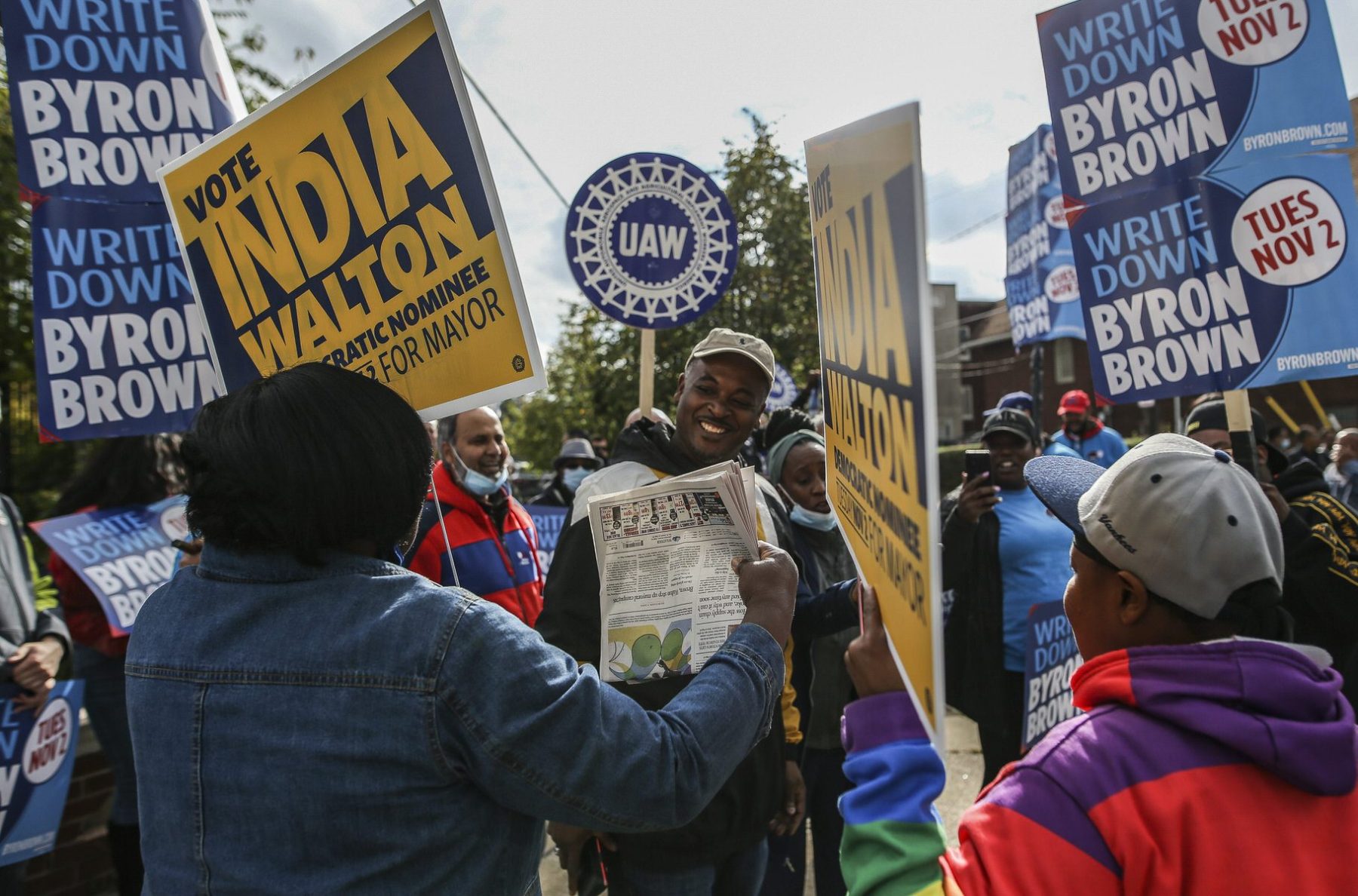India Walton, a self-described democratic socialist who sought to become Buffalo’s next mayor, appeared to be headed to defeat, losing to the incumbent mayor whom she had initially bested in a June primary.
Byron Brown, the longtime Democratic mayor of New York’s second largest city and its first Black mayor, launched an unusual write-in campaign that ultimately proved successful. His comeback to a fifth term means he will become Buffalo’s longest-serving mayor.
While many write-in ballots remained to be counted, Walton had about 41 percent of the vote.
“However, while we anticipate that the margins will narrow, it seems unlikely that we will end up with enough votes to inaugurate a Walton administration in January,” she acknowledged on Twitter on Wednesday.
Walton, who won the Democratic primary in June, had been poised to make history as Buffalo’s first elected woman mayor and its first Black woman in the role. Republicans didn’t even put up a nominee in this Democrat-heavy city, and in most years she would have been easily seen as the presumptive mayor. Brown’s win as a write-in candidate showcases his success in attracting Republicans and independents, as well as Democrats who may have been wary of Walton’s lack of formal political experience and her left-leaning policies.
The race was also seen as a political bellwether for progressive policies nationwide, particularly ahead of a midterm election in which Democrats nationwide must defend slim majorities in Congress and in which governorships and statehouses are up for grabs.
Walton, 39, is a former nurse and community organizer. A first-time candidate, she has talked on the campaign trail about how young parenthood — she had a baby when she was 14 — and her work organizing for labor rights gave her the lived experiences to address unequal policies throughout the city.
During the campaign, Brown, 63, highlighted his record in bringing economic prosperity, which he said included new building development.
“Mayor Byron Brown and his administration will continue the reimagination of what this city and its people can achieve. #WriteDownByronBrown,” his campaign tweeted days before Tuesday’s election.
Walton had countered that such prosperity had left many residents behind while allowing for corruption and mismanagement in City Hall.
The race turned increasingly ugly in its final weeks. Walton accused Brown of not being a Democrat due to some Republicans backing his campaign. At one point, a key state Democratic leader highlighted former KKK leader David Duke’s failed political campaigning to explain why some party officials had not endorsed Walton’s campaign — he later apologized for the analogy.
The race had also been divisive among Democrats. While Walton went into Tuesday with the backing of both the state’s senators, some key statewide Democrats — including Buffalo native and now-Gov. Kathy Hochul — stayed out of the race.
Earlier this year, Walton received an endorsement from the progressive Working Families Party. Sochie Nnaemeka, the party’s state director for New York, said Walton’s loss signifies the work ahead in fixing campaign finance rules. She noted the large amounts of money that poured into the race in its final weeks, including from a developer and former Republican gubernatorial nominee who boosted Brown’s campaign. WFP also contributed to Walton’s campaign.
“The role of money in politics is something that we have to fundamentally address if we want to create a democracy that works for all of us,” she said. “… Running a grassroots campaign will continue to be a challenge, and grassroots candidates will be anomalies, if we don’t actually address the fundamental root.”







